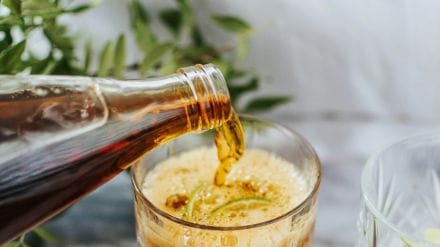While sugar-sweetened beverages are traditionally considered more damaging than diet sodas, new research suggests zero-calorie drinks could be more harmful than their sweeter counterparts.
Challenging common perception, scientists in the new study find that having even one diet soda a day can increase chances of nonalcoholic fatty liver disease (NAFLD) by 60%. Drinking a sugary beverage is slightly less damaging, as the research says it increased the risk by 50%.
NAFLD is characterised by excess fat build-up in the liver, in people who do not consume alcohol. The condition progresses through different stages, with advanced ones associated with heightened risk of liver cirrhosis and even liver cancer.
The study was presented in Berlin at the United European Gastroenterology Week, an annual conference of the European Society of Gastrointestinal Endoscopy. NAFLD has become a major concern with a 50% jump in the United States in the past three decades, affecting 38% of the total population.
Surprising insights of the study
“Sugar sweetened beverages (SSBs) have long been under scrutiny, while their ‘diet’ alternatives are often seen as the healthier choice,” said study’s lead author Lihe Liu.
“Our study shows that LNSSBs (low- or non-sugar-sweetened beverages) were actually linked to a higher risk of MASLD, even at modest intake levels such as a single can per day,” Liu, a graduate student in gastroenterology department at the First Affiliated Hospital of Soochow University, in Suzhou, China said in a statement.
The unpublished study warns consuming the diet beverages on a regular basis can also raise chances of dying from liver disease.
How the study was conducted
For the study, 124,000 people without liver disease participating in the UK Biobank, were involved. The diet patters were assessed with the help of a 24-hour dietary questionnaires through a period of 10 years. Participants were asked – “How many glasses, cans or cartons containing 250 mL of soft drinks did you drink yesterday?”
Link between diet and sugary sodas to nonalcoholic fatty liver disease was assessed. It was found that people who substituted with water reduced risk by nearly 13% for sugary beverages and over 15% for diet drinks. However, switching from sugary drinks to diet drinks didn’t help.
What’s the solution?
While both sugary beverages and diet sodas raised risk of fatty liver disease, the so-called healthier option turned out to deadlier for the liver.
However, the limitation of the study was that the scientists were unable to evaluate whether a particular sweetener was more strongly associated with liver outcomes, Liu told The New York Post.
The researchers suggests ditching both the drinks and embrace water for hydration, as it remains the best choice.
